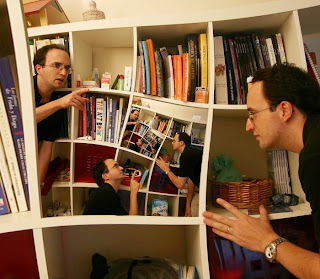If you woke up this morningwith more health than illness, you are more blessed than themillion who won't survive the week.
If you have never experiencedthe danger of battle,the loneliness of imprisonment,the agony of torture orthe pangs of starvation,you are ahead of 20 million peoplearound the world.
If you attend a temple
Without fear of harassment, arrest, torture, or death, you are more blessed than almostthree billion people in the world.
If you have food in your refrigerator,clothes on your back, a roof overyour head and a place to sleep,you are richer than 75% of this world.
If you have money in the bank,in your wallet, and spare changein a dish someplace, you are amongthe top 8% of the world's wealthy.
If your parents are still married and alive,you are very rare,especially in the United States.
If you hold up your head with a smileon your face and are truly thankful,you are blessed because the majority can,but most do not.
If you can hold someone's hand, hug themor even touch them on the shoulder,you are blessed because you canoffer God's healing touch.
If you can read this message,you are more blessed than overtwo billion people in the worldthat cannot read anything at all.
You are so blessed in waysyou may never even know.
Blessings to you!








































































